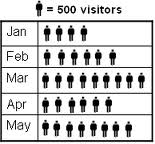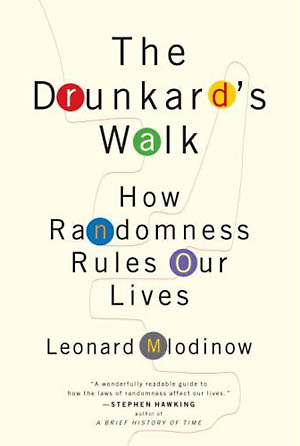 The first test tube baby was born July 25th, 1978 in the north of England. Louise Brown was called the “baby of the century” by some and a “moral abomination” by others. It wasn’t Brown who critics accused of being immoral, of course. She was just a blameless infant. Instead, it was her doctors who came under fire for their new fertility treatment—in vitro fertilization (or IVF). Roman Catholic theologians characterized this treatment as “unnatural”. Bioethicists fretted about the risk such treatments posed for mothers and children.
The first test tube baby was born July 25th, 1978 in the north of England. Louise Brown was called the “baby of the century” by some and a “moral abomination” by others. It wasn’t Brown who critics accused of being immoral, of course. She was just a blameless infant. Instead, it was her doctors who came under fire for their new fertility treatment—in vitro fertilization (or IVF). Roman Catholic theologians characterized this treatment as “unnatural”. Bioethicists fretted about the risk such treatments posed for mothers and children.
But all these critics of IVF missed the true immorality behind Louise Brown’s birth. Brown’s doctors never told her mother that IVF was a brand new procedure… (Read more and view comments at Forbes)
Deciding About Breast Cancer Chemotherapy
 As if being diagnosed with breast cancer wasn’t bad enough, many women with this diagnosis face complicated decisions about what kind of medicine or chemotherapy to take, if any, to reduce their chance of cancer recurrence. As I discussed in a recent post, the mathematics of such decisions can be hard to comprehend for many patients. But given that the right choice often depends on patient preferences, it would be great to help patients understand enough of their math to involve them in making the choice.
As if being diagnosed with breast cancer wasn’t bad enough, many women with this diagnosis face complicated decisions about what kind of medicine or chemotherapy to take, if any, to reduce their chance of cancer recurrence. As I discussed in a recent post, the mathematics of such decisions can be hard to comprehend for many patients. But given that the right choice often depends on patient preferences, it would be great to help patients understand enough of their math to involve them in making the choice.
A group of researchers has developed a tool to help women with these decisions. Called Adjuvant Online, it is a computer algorithm that takes in information about a specific woman’s cancer, and then produces survival estimates for her, illustrating her chance of survival and breast cancer recurrence based upon whether she chooses one set of treatments versus another… (Read more and view comments at Forbes)
What Homer Simpson Can Teach Oncologists About Math
 Let’s warm up with a quick arithmetic problem, which I want you to do in your head.
Let’s warm up with a quick arithmetic problem, which I want you to do in your head.
What is one thousand plus forty?
Now add another thousand
And thirty more
Plus twenty
Plus another thousand
And finally, add an additional ten.
What’s the answer? According to Dean Buonomano, in his excellent book Brain Bugs, the majority of people give an answer of five thousand, instead of the correct answer of 3100.
“Most of us can find a face in the crowd faster than we can come up with the answer to eight times seven. The truth is—to put it bluntly—we suck at numerical calculations… (Read more and view comments at Forbes)
New Review of Critical Decisions
 The book Critical Decisions: How You and Your Doctor Can Make the Right Medical Choices Together by Peter A. Ubel, MD effectively makes the case that good medical decisions require empowered patients, clinicians prepared to support them and techniques to help them communicate.[1] Better than any existing literature, this book highlights techniques and behaviors that clinicians must use to support the empowered patient, and suggests significant improvements to decision aids.
The book Critical Decisions: How You and Your Doctor Can Make the Right Medical Choices Together by Peter A. Ubel, MD effectively makes the case that good medical decisions require empowered patients, clinicians prepared to support them and techniques to help them communicate.[1] Better than any existing literature, this book highlights techniques and behaviors that clinicians must use to support the empowered patient, and suggests significant improvements to decision aids.
The book is informative, comprehensive, and accessible. It is an important resource for clinicians and patients who want to learn ways to better communicate to each other in making health care/medical decisions.
The first part of the book, “The Rise of the Empowered Patient,” presents the history of medical decision making — starting with ancient Greece and Hippocrates, continuing with the ethics of experimentation of the mid 20th century, and concluding with a detailed account of the seeds of the empowered patient movement starting in the 60s… (Read more at the Journal of Participatory Medicine)
The Way Physicians Break Bad News is Broken
 Imagine picking up a telephone and hearing your doctor tell you there is a “999 out of 1,000 chance that you’ll be dead within a decade.” That’s what Leonard Mlodinow experienced in 1989, when his routine HIV test didn’t turn out the way he expected. Mlodinow tells this story in his 2008 book, The Drunkard’s Walk, a book in which he highlights how randomness affects people’s lives and, just as importantly, how frequently we human beings misperceive this randomness as following from predictable laws. We mistake the drunkard’s walk for purposeful movement.
Imagine picking up a telephone and hearing your doctor tell you there is a “999 out of 1,000 chance that you’ll be dead within a decade.” That’s what Leonard Mlodinow experienced in 1989, when his routine HIV test didn’t turn out the way he expected. Mlodinow tells this story in his 2008 book, The Drunkard’s Walk, a book in which he highlights how randomness affects people’s lives and, just as importantly, how frequently we human beings misperceive this randomness as following from predictable laws. We mistake the drunkard’s walk for purposeful movement.
Mlodinow tells the HIV story to illustrate his physician’s inability to think probabilistically. But I think the story just as profoundly illustrates the difficulty many doctors have…(Read more and view comments at Forbes)
Me, the Writer's Manual?
 Here is a link to my guest spot on You, The Owner’s Manual radio show, hosted by New York Times best-selling author Dr. Michael Roizen. It is a lively interview, worth listening to if for no other reason than Roizen’s great taste in writing: “I really enjoyed the book,” he said to me at one point “…where did you learn to be such a great writer?” Very nice to get such feedback. He added on later: “It’s a book for everyone’s bathroom shelf, if not the plane or any place else. It’s a wonderful book.” It is this kind of praise that keeps me motivated. Really gratifying to hear people’s enthusiastic reaction to Critical Decisions!
Here is a link to my guest spot on You, The Owner’s Manual radio show, hosted by New York Times best-selling author Dr. Michael Roizen. It is a lively interview, worth listening to if for no other reason than Roizen’s great taste in writing: “I really enjoyed the book,” he said to me at one point “…where did you learn to be such a great writer?” Very nice to get such feedback. He added on later: “It’s a book for everyone’s bathroom shelf, if not the plane or any place else. It’s a wonderful book.” It is this kind of praise that keeps me motivated. Really gratifying to hear people’s enthusiastic reaction to Critical Decisions!
Does Obamacare Interfere with the Doctor Patient Relationship?
 Q: Much of the debate around health care reform has centered on whether the government or the individual will control health care decisions. Is that a valid argument?
Q: Much of the debate around health care reform has centered on whether the government or the individual will control health care decisions. Is that a valid argument?
Most medical decisions are between clinicians and their patients, and will continue to be that way as the federal health reform law is implemented. Medicare bureaucrats aren’t going to decide who should take insulin shots. That will still be something for individual doctors and patients to determine together. Mainly, this fuss about the government taking over medical decision-making comes down to partisan fear-mongering. Few things are more politically powerful than scaring voters.
Q: Is health care reform likely to change the way doctors treat their patients?
I am not suggesting that doctors and their patients will have unrestricted abilities to decide whatever they want together. That hasn’t been true in medical care for quite some time now. At least since the growth of managed care in the 1990s… (Read more and view comments at News&Observer)
Video Introduction to Critical Decisions
Here is my latest Critical Decisions video. This one gives a broad introduction to the reasons I wrote the book.
Why It's a Mistake for Doctors to be Color Blind
 The role of race in college and graduate school admissions remains controversial in the U.S. In fact, the Supreme Court is currently taking up a challenge to a University of Texas program that considers race in its admission decisions. Critics of race-based admissions question whether educational institutions would serve the goals of affirmative action better by relying exclusively on non-race based criteria… (Read more and view comments at Forbes)
The role of race in college and graduate school admissions remains controversial in the U.S. In fact, the Supreme Court is currently taking up a challenge to a University of Texas program that considers race in its admission decisions. Critics of race-based admissions question whether educational institutions would serve the goals of affirmative action better by relying exclusively on non-race based criteria… (Read more and view comments at Forbes)
Marketplace Interview with Tess Vigeland
 I had the great pleasure of speaking with Tess Vigeland, host of Marketplace Money. We discussed my book Critical Decisions in the context of what shared decision making means about patients paying attention to the cost of their medical care. Listen to the whole segment, because she is a great interviewer. And find out why it is hard to be assertive when you are half naked.
I had the great pleasure of speaking with Tess Vigeland, host of Marketplace Money. We discussed my book Critical Decisions in the context of what shared decision making means about patients paying attention to the cost of their medical care. Listen to the whole segment, because she is a great interviewer. And find out why it is hard to be assertive when you are half naked.
